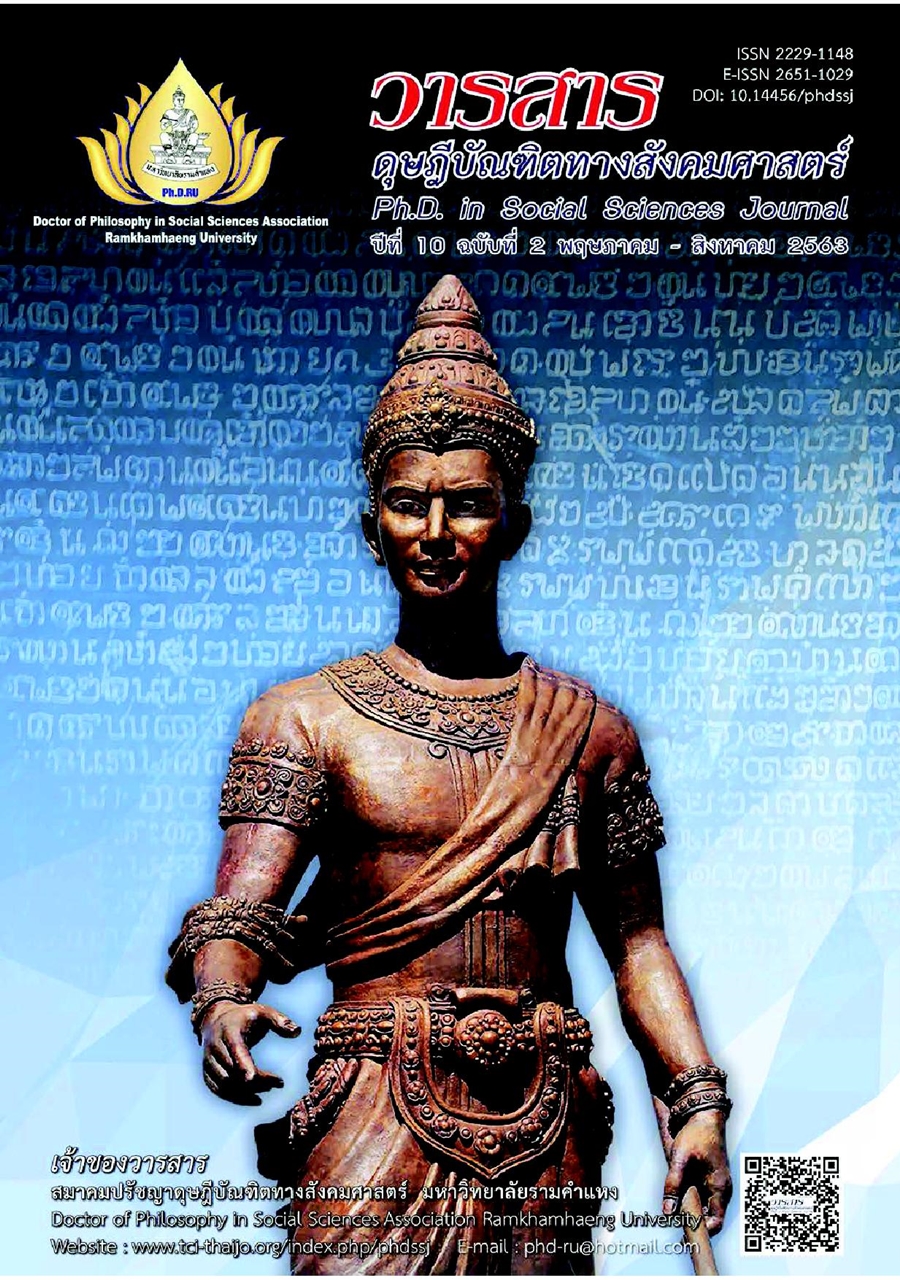The Potential of Adaptation of Thai Automotive Parts Manufacture in the Era of Electric Vehicle Technology Transition
Main Article Content
Abstract
This research article are objectives aim of this that; the macro environment factor, The specific factors for adaptation of Thai automotive parts manufacturer in the era of electric vehicle technology transition and a direct affect to the business of Thai automotive parts manufacturer in the era of electric vehicle technology transition and for study The potential of adaptation of automotive parts manufacturer. The mixed method was used for perceiving a quantitative basic data and the potential of adaptation including qualitative data to apperceive the insight information from entrepreneurs through description the adaptation of business entrepreneur in a realistic situation and factors. From the study of 400 representative samples in Thai automotive parts entrepreneurs consist of 76 of the first auto parts manufacturers (First tier, Tier I), 324 of the second and third auto parts manufacturers (Second tier, Tier II) (Third tier, Tier III) using Structural Equation Modeling (SEM).
The results were summarized as both macro environment and specific factor affect the electric vehicle technology business and had a positive influence on the potential of adaptation of Thai automotive parts manufacturer. The main macro factor were cultural and social factors while economic factors was the least. For Industrial Factors (IND), the most importance factor was the bargaining power of the customer when the risk of substitute products were the least.
Article Details
Academic articles, research articles, and book reviews in the Ph.D. in Social Sciences Journal are author’s opinions, and not the publisher’s, and is not the responsibility of the Ph.D. in Social Sciences Journal Philosophy Association, Ramkhamhaeng University. (In the case that research is done on human, the researcher has to be trained in Ethics for Doing Research on Human Training and has to produce the evidence of the training).
References
Aguilar, J. F. (1967). Scanning the business environment. Macmillan.
Department of Trade Negotiations, Information and Communication Technology Center. (2017). Service information about international trade statistics of Thailand. Author. [In Thai]
The Federation of Thai Industries. (2014). Industry focus auto part. Author. [In Thai]
International Energy Agency (IEA). (2015). Report: What is a cooperative?. Author.
Laoonual, Y. (2015). Assessment of electric vehicle technology development and its implication in Thailand. National Science and Technology Development Agency. [In Thai]
National Science and Technology Development Agency. (2016). Ministry of Science, NSTDA, joins hands with partners to organize “Auto Parts Tech Day 2016” event, showing the potential of production technology and innovation of Thai auto parts. Retrieved from https://www.nstda.or.th/th/news/368-auto-parts-tech-day-2016
Porter, M. E. (1979). How competitive forces shape strategy. Harvard Business Review, 57(2), 137–145.
Robbins, S. P., & Coulter, M. K. (2007). Fundamentals of management (9th ed.). Prentice Hall.
Tangkitvanich, S., Rattanakhamfu, S., & Akrasanee, N. (2013). 10 years, a decade of increasing productivity-selling intelligence. Retrieved from https://tdri.or.th/2013/11/year-end-2 [In Thai]
Thai Auto-Parts Manufacturers Association. (2017). Report of small group meetings. Author. [In Thai]
Thailand Automotive Institute. (2015). Report of auto parts cluster. Author. [In Thai]
Yamane, T. (1973). Statistics: An introductory analysis (3rd ed.). Harper and Row.


